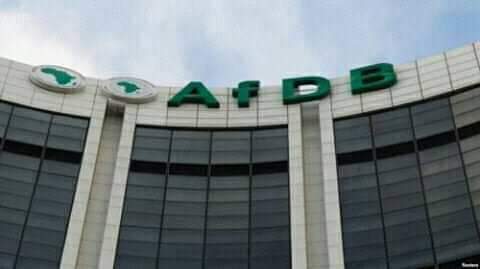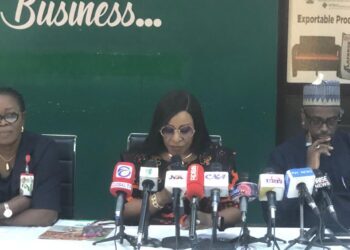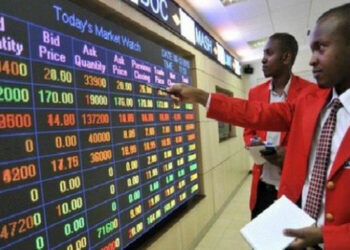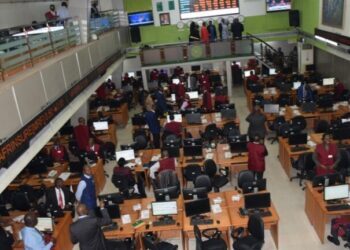The African Development Bank has taken a significant step towards fostering economic growth in Africa by committing an equity investment of US$11 million to BluePeak Private Capital Fund.
This partnership aims to support an indigenous fund manager who possesses extensive knowledge of African markets and is dedicated to investing in underserved small and mid-size companies across the continent.
African Development Bank Invests In BluePeak Private Capital Fund
The African Development Bank Group’s Board of Directors has given its seal of approval for an equity investment of US$11 million in BluePeak Private Capital Fund. This investment contributes to BluePeak’s final close target of $155 million. By facilitating the growth of mid-size firms in sectors such as pharmaceuticals, agribusiness, manufacturing, and logistics, the African Development Bank actively promotes its goal of supporting economic development in Africa.
BluePeak Private Capital Fund: Empowering Potential Market Leaders
As a premier private capital fund based in Luxembourg, BluePeak plays a pivotal role in providing growth capital to middle-sized companies with the potential to become market leaders across Africa. By focusing on expansion, recapitalization, and deleveraging, BluePeak adds value to its portfolio companies. The fund plans to make a minimum of eight investments ranging from $8 million to $25 million in well-established companies that generate steady cash flows.
Diverse Investment Opportunities: BluePeak’s Thriving Portfolio
BluePeak’s current investment pipeline encompasses a diverse range of sectors. The fund allocates 22% to agribusiness, 22% to manufacturing and packaging, 12% to pharmaceuticals, 12% to fintech and financial services, and 11% each to information technology and telecommunication, logistics, and commercial real estate. With such a broad spectrum of investments, BluePeak is poised to attract interest from other development finance institutions.
African Development Bank’s Commitment On Businesses
Walid Cherif, co-founder of BluePeak Private Capital, expressed his appreciation for the African Development Bank’s commitment, stating that it signifies confidence in their strategy of supporting impactful businesses in Africa. The financing challenges faced by SMEs in Africa due to macroeconomic setbacks necessitate filling the financing gap, a role BluePeak is determined to play.
Unveiling The Benefits: African Development Bank’s Equity Investment
The equity investment from the African Development Bank promises multiple benefits, including ensuring that the fund adheres to the highest standards. By investing in BluePeak, the bank supports an indigenous fund manager with an in-depth understanding of African markets, enabling them to invest in underserved small and mid-size companies. The fund managers have already identified investment opportunities across 15 African countries.
Driving Job Creation And Infrastructure Development
The equity investment by the African Development Bank is projected to create 1,142 full-time jobs while simultaneously supporting the construction of 6,400 telecommunication towers. Moreover, it aims to significantly increase the production of malaria drugs from 33 million units in 2022 to 75 million units in 2027. As a substantial portion of the portfolio firms operate in rural areas, this investment will also benefit women and other vulnerable members of communities, particularly in the agribusiness sector.
BluePeak Fund And The African Development Bank
The investment strategy of BluePeak Fund aligns seamlessly with the African Development Bank’s High 5 priorities. This includes industrializing Africa, improving the quality of life for its people, and working towards achieving food security across the continent.
African Development Bank’s Vision
Through the equity investment, the African Development Bank aims to contribute to Africa’s integration at both the continental and regional levels. This strategic move promotes private sector promotion and is in line with the African Development Bank’s priorities for the development of the private sector, particularly in supporting small and medium-sized enterprises. Furthermore, this investment plays a crucial role in advancing the bank’s strategy to enhance Africa’s pharmaceutical manufacturing capabilities on a continent-wide scale.
The African Development Bank’s equity investment in BluePeak Private Capital Fund represents a significant milestone in driving economic growth and empowering African businesses. By supporting an indigenous fund manager with a deep understanding of African markets, the bank ensures that underserved small and mid-size companies receive the necessary investments to thrive. The diverse investment opportunities offered by BluePeak contribute to job creation, infrastructure development, and the overall improvement of livelihoods across the continent.
Through strategic investments in sectors such as pharmaceuticals, agribusiness, manufacturing, and logistics, the African Development Bank actively promotes its High 5 priorities, industrializing Africa, improving quality of life, and feeding the continent. This equity investment not only strengthens the private sector but also facilitates Africa’s integration at the regional and continental levels.
As the African Development Bank continues to champion economic development and sustainable growth in Africa, partnerships like the one with BluePeak Private Capital Fund pave the way for a brighter future. By maximising investments and leveraging the potential of African businesses, the bank plays a vital role in transforming the continent’s economic landscape.










